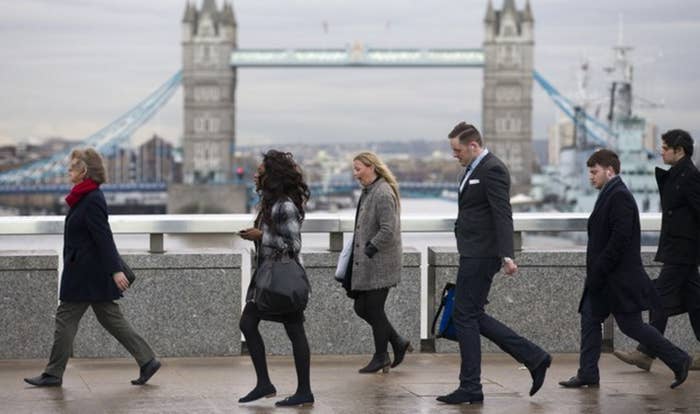
Ensuring that black and minority ethnic (BME) people progress in their careers at the same rate as their white counterparts could boost the British economy by £24 billion a year, according to a government review into racial discrimination in the workplace.
The review, published on Tuesday, also found that GDP could increase by 1.3% a year if people from BME backgrounds were not being held back in the workplace because of the colour of their skin.
Employment rates for BME people are 12% lower than for white people, and just 6% reach top-level management, the review found. People from BME backgrounds are also more likely to be employed in lower-paid and lower-skilled jobs despite having a degree.
Conservative peer Baroness McGregor-Smith, who led the review, gave a total of 26 recommendations, which included calling on companies with more than 50 employees to draw up five-year aspirational diversity targets, nominate a board member to deliver on these targets, and publish a breakdown of their workforce by race and pay band.
McGregor-Smith told BuzzFeed News she was surprised at just how few companies in the UK hold information about the racial makeup of their workforce and how it relates to pay discrepancies.

"We don't have enough data from our largest companies on race and pay band, and it's something that needs to change," she said. If companies do not voluntarily disclose this information, she added, then the government should legislate to make sure they do.
McGregor-Smith, chief executive of outsourcing firm Mitie Group, is the only female Asian chief executive of a FTSE 250 company, also told BuzzFeed News that she was surprised by the amount of unconscious bias exists in the workplace.
"Maybe because I'm Asian I've tried to ignore it," she said. "In the sense of my own career, I haven't really focused on it too much. But now I'm having to face the fact that there is still so much unconscious bias in the workplace against so many individuals just because they look different, and I think that we need to change that".
The review was launched by then prime minister David Cameron as part of his plan to end discrimination and increase social mobility by 2020.
With Cameron's successor, Theresa May, increasingly concerned about the country's economic stability after it leaves the European Union, McGregor-Smith said she was convinced that the government will not let the issue of diversity in the workplace end up on the back burner.
"I have absolute faith that the UK government is absolutely committed to ending discrimination in the workplace," she said. "We all need to work with them to do that.
"At the end of the day," she said, "if the economy is boosted because businesses are doing better by having a more diverse workforce, then actually there will be more job opportunities, more job creation, and more development of staff, more investment, and more money for public services. That's what I'm really keen to show."
She also said she wants to make sure that the findings from the report and her recommendations make a difference so similar reviews do not have to be repeated.
"I hope that everyone understands that I never want to write another report again," she said. "As far as I'm concerned, we've done this report – how many more reports can we write about race? I think there is no more time for reports, it's time for action."
McGregor's view was echoed by David Isaac, chairman of the Equality and Human Rights Commission, who called on the government to produce a "comprehensive race strategy".
“The colour of your skin or your race should never hold anyone back at work," he said.
"We welcome the plans set out by Baroness McGregor-Smith to drive change, but we are still of the view that the government must produce a comprehensive race strategy to tackle all the interrelated issues that hold people back. Without such an approach we are worried that divisions will continue to grow."
